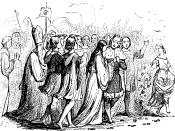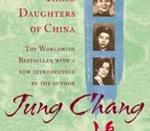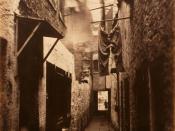Comparing the Rockinghorse Winner and The Wild Swans
The infatuation of the accumulation of money and wealth of an indulgent and self-righteous society is evident between the years of 1900 and 1945. This was the era of the Modern Dramatists, which David Herbert Lawrence belonged to. The values of the middle class society in this time were to emulate the upper class, gaining social status and superficial recognition. Lawrence despised these values, which society held, being exposed to them as a child witnessing the disparity of his parents trying to achieve this type of social status, and he shows in the Rocking-Horse Winner, his disgust for these values. Lawrence demonstrates that in a patriarchal society, minds are misguided, obsessed with the accumulation of wealth, and as a result of this, the value of family is discarded which will only lead to self-destruction. The opening of the story gives a fairytale like description of a mother who "could not feel love, no, not for anybody" including for her children.
Determined to please his mother, Paul goes on a "mad little journey" to prove his luck and to attain the unattainable, the love of his mother. Elisa from The Wild Swans is also on a quest to achieve the near unattainable, of saving her brothers, demonstrating a strong family value, from the spell cast upon them by their evil stepmother. The Wild Swans was written during the Victorian Era, which was the time when Britain was the richest colonial empire. Like Lawrence, Hans Christian Anderson despised the value of money and wealth, having been brought up in poverty himself, and also found revulsion in the patriarchal system of the church. During the Victorian Era new scientific theories challenged many religious beliefs, which made society reassess their values and lose faith in traditional...


